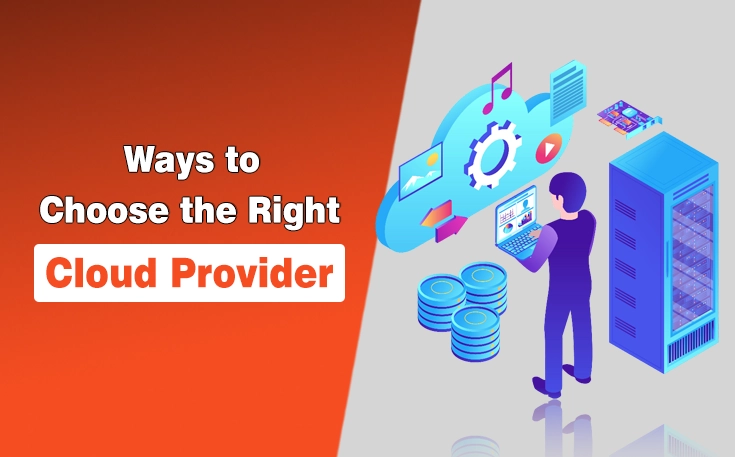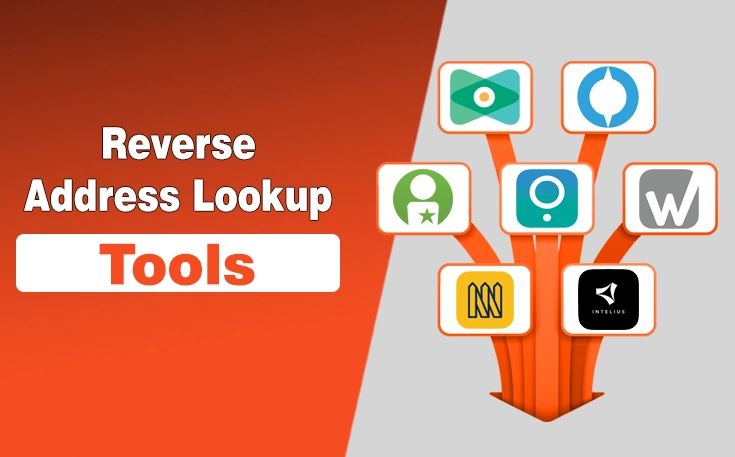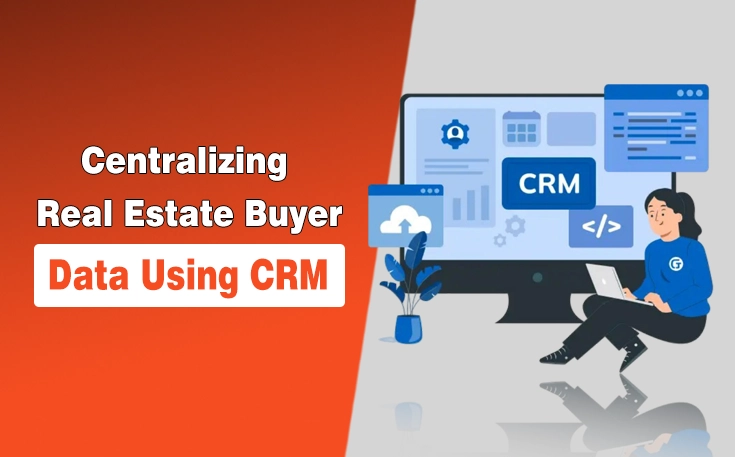Cloud computing and cloud services serve as a game-changer for small businesses. Most businesses are unaware of this advanced technology, which is why they are falling behind day by day in today’s modern and competitive market.
However, there are some who understand its importance, but they are unsure which cloud service provider is most suitable for their business. If you are also one of them, then this blog is for you.
In this blog, I will discuss the 10 ways to choose the most suitable cloud provider for your business.
What is a Cloud Service Provider?
A cloud provider, also called a cloud service provider (CSP). It is a business that lets people use on-demand computing services such as storage, computing power, and apps whenever they need them over the internet.
They rent these resources to individuals and businesses, typically on a pay-as-you-go basis, allowing users to access and utilize them without having to manage the underlying infrastructure.

10 Ways to Choose the Right Cloud Provider
Choosing the most suitable cloud provider for your small business is the most important decision you have to make. You have to make sure that the provider you choose meets all the desired requirements of your business to give you the maximum results.
These are the 10 ways to choose the right cloud provider for your business:
1. Assess Your Business Needs
First, you have to analyze and understand your business requirements. After that, you have to identify which applications you use on a daily basis. Consider storage, computing power, and user access needs.
Let me give you an example, such as a retail business may prioritize e-commerce integration or etc. Meanwhile, a consultancy might need strong collaboration tools.
Therefore, map out your goals. This clarity will guide you in selecting your cloud provider.
2. Evaluate Scalability Options
You have to keep in mind that your business will grow over time. Consequently, your cloud provider must also have to scale with you. For that, check if the cloud provider you have decided on offers flexible plans or not.
This flexibility includes it should be able to upgrade storage or bandwidth easily, and many others like this. You can also prefer providers like AWS and Google Cloud that allow seamless scaling.
Thus, choose a provider that supports your growth without disruptions.
3. Prioritize Security Features
Everything is on a side, but security is non-negotiable for small businesses. Data breaches can easily destroy your operations and the strategies you have in place. Hence, you have to select a cloud provider with strong security measures.
These security measures include encryption, firewalls, and regular audits. Additionally, check for compliance with standards such as GDPR or HIPAA. Some of the most reliable examples include Microsoft Azure, which emphasizes compliance certifications.
So, prioritize providers with strong security protocols.
4. Compare Pricing Models
Budget matters for small businesses because they often have a tighter budget. Cloud providers offer various pricing structures. Some of them charge per user, others according to the usage.
Therefore, deeply analyze pricing transparency. Avoid hidden fees for data transfers or support. For example, DigitalOcean offers straightforward pricing for startups.
When comparing pricing models, it’s wise to also review a list of best cloud cost optimization tools that can help track usage and prevent overspending.
5. Check Uptime and Reliability
Downtime can extremely harm your business. Mostly, customers expect 24/7 access to services. Thus, you have to choose a provider with a strong uptime record. Some of the top providers, such as AWS, guarantee 99.9% uptime.
Additionally, review their Service Level Agreements (SLAs). These outline compensation for downtime.
Hence, always prioritize reliability to maintain customer trust and to increase customer retention.
6. Explore Integration Capabilities
Your cloud provider should work with existing tools. An example includes: Does it integrate with your CRM system or accounting software or not?
You have to focus on seamless integrations that save a lot of precious time and reduce errors. Moreover, platforms like Google Cloud integrate well with Google Workspace.
Therefore, test the compatibility of your cloud provider with your tech stack before committing.
7. Investigate Customer Support
Small businesses most of the time do not have any in-house IT teams. Consequently, reliable customer support is the most essential thing a business owner definitely has to focus on and can’t ignore in any case. Look for 24/7 support via multiple channels.
These include phone, email, and live chat. Thus, choose a cloud provider with accessible, expert assistance.
8. Review Data Backup and Recovery
Data loss can completely destroy your whole business. The reason behind this can be the strategies that were hacked in a data breach or removed in a data loss. Therefore, make sure that the cloud provider offers strong backup options.
Automatic backups and easy recovery processes are essential. Additionally, check how often backups occur. So, prioritize providers with strong disaster recovery plans.
9. Consider User Experience
A user-friendly interface saves a lot of time and grabs a lot of audience attention. Complicated interfaces and dashboards can frustrate non-technical staff who are not very familiar with using complex structures.
Hence, test the provider’s platform for ease of use. Additionally, look for training resources or tutorials.
Thus, choose a cloud provider that simplifies management for your team.
10. Research Vendor Reputation
Finally, investigate the provider’s track record and deeply analyze all of its past performance. Read reviews from other small businesses about the provider. Check for consistent performance and customer satisfaction.
Moreover, avoid providers with frequent complaints. Therefore, select a reputable vendor with a proven history.
Summing Up
Choosing the right cloud provider is essential for small businesses that are aiming for growth and security. By meeting your business needs, evaluating scalability, prioritizing security features, and comparing pricing models, you can make an informed decision.
Additionally, make sure the provider offers reliable uptime, seamless integration, and effective customer support. Selecting the best cloud service provider not only enhances operational efficiency but also protects your business data, which leads the way for long-term success.
Need custom app with amazing features?
Get a Quote




